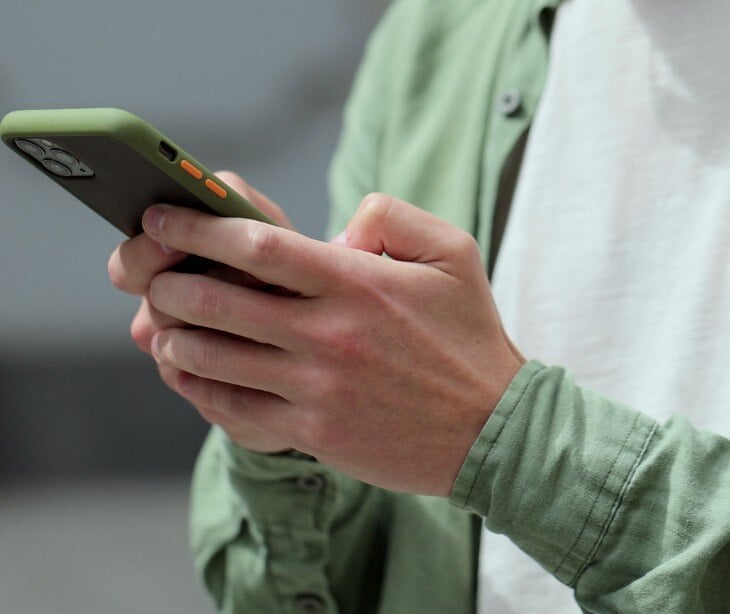3 min read
How psychoeducational text messaging improves patient outcomes
Caitlin Anthoney May 12, 2025

HIPAA compliant text messaging helps therapists get psychoeducation material to their patients in a convenient and accessible way.
What is psychoeducation?
Psychoeducation is a form of therapy in which the therapist provides the patient with information on their mental health condition. It “[provides] the patient and families knowledge about various facets of the illness and its treatment so that they can work together with mental health professionals for a better overall outcome,” explains The Indian Journal of Psychiatry’s Clinical Practice Guidelines for Psychoeducation in Psychiatric Disorders General Principles of Psychoeducation.
This gives the patient the necessary skills to manage their diagnosis and treatment.
Psychoeducation can be delivered in different ways, for example, conventional therapy sessions, workshops, learning materials, and even text messages. This versatility ensures patients have access to support wherever they are, promoting flexibility beyond conventional care settings.
Text messaging, in particular, is a convenient and accessible way to deliver psychoeducational content. It allows patients to receive information and support in real-time, wherever they may be, fostering a more engaged and empowered approach to managing their mental health.
Why text messaging is an effective method of patient support
Text messages are a convenient way of communicating with patients. More specifically, structured therapeutic interventions can be delivered using text messaging, as evidenced in a systematic review of the technology features of web- and mobile-based psychoeducational interventions for depression.
When psychoeducational information is presented in a text message, patients can consume the content at their own pace and revisit it anytime. For example, if a therapist sends a text message with quick tips on managing stress, the patient can access the information at any time, whenever necessary.
A brief text message delivers information in a concise and digestible manner for the patient to quickly absorb the tips without potentially feeling overwhelmed. These texts can become particularly useful when a patient experiences stress and their focus is limited.
How psychoeducational text messaging can improve patient outcomes
Improved adherence to treatment plans
When a therapist sends a reminder to their patient of their next appointment or reminds them to take their medication, patients are more likely to adhere to their treatment, which ultimately leads to improved patient outcomes.
Additionally, the convenience of text messaging allows patients to easily access supportive resources and guidance. This helps them actively engage in their mental health journey and make informed decisions for their well-being.
According to a clinical trial on Automated Text Messaging as an Adjunct to Cognitive Behavioral Therapy for Depression, "Intent-to-treat analyses on therapy attendance during 16 sessions of weekly therapy found that patients assigned to the text messaging adjunct stayed in therapy significantly longer..."
Increased engagement and communication
Text messaging is an easy way for healthcare practitioners (including therapists) to check their patient's progress. It is also convenient for patients who want to get clarity directly from their therapist regarding their diagnosis or treatment plan, improving communication between the therapist and the patient.
Timely education and support
Text messaging patients offers quick and easy access to psychoeducational materials like self-management strategies, so patients can make informed decisions and make a conscious effort to improve their health.
Additionally, bi-directional text messaging platforms allow patients to engage with the material immediately, facilitating a more dynamic and personalized learning experience for their specific needs and preferences.
Behavioral change support
Text messages can also encourage patients to adopt healthier lifestyles. Sending motivational messages with tips can help keep them on track to lead a healthier lifestyle and achieve better outcomes.
According to a meta-analysis on the efficacy of text messaging-based interventions for health promotion, “Message tailoring and personalization [is] significantly associated with greater intervention efficacy.”
Therefore, personalized text messages allow for targeted interventions, increasing the effectiveness of behavioral change support strategies.
Remote monitoring and management
Text messaging allows therapists to implement psychoeducation from anywhere. Using a quick text message, therapists can monitor patients' emotional well-being, adherence to their treatment plan, and coping techniques.
Based on the patient's response, therapists can then offer tailored psychoeducational tools and further support, resulting in continuous engagement and personalized care beyond traditional therapy sessions.
Go deeper: Remote patient monitoring strategies for mental health professionals
FAQs
Are personalized texts effective?
Yes, personalized text messages like appointment reminders and medication prompts result in better patient engagement and lead to better patient outcomes. Personalized text messages address patients directly and offer tailored information.
Patients who receive personalized text messages are, therefore, more likely to adhere to treatment plans, attend appointments promptly, and maintain medication regimens. Overall, text messaging plays a significant role in patient engagement and improved healthcare outcomes.
Can text messages be personalized and HIPAA compliant?
Yes, healthcare providers can send personalized text messages containing protected health information (PHI) for efficient patient communication that follows HIPAA regulations.
Providers must ensure the privacy and security of the patient's identifiable health information.
Is patient consent required for HIPAA compliant text messages?
Yes, providers must first obtain explicit patient consent before sending patients’ PHI via text messages.
Subscribe to Paubox Weekly
Every Friday we bring you the most important news from Paubox. Our aim is to make you smarter, faster.




